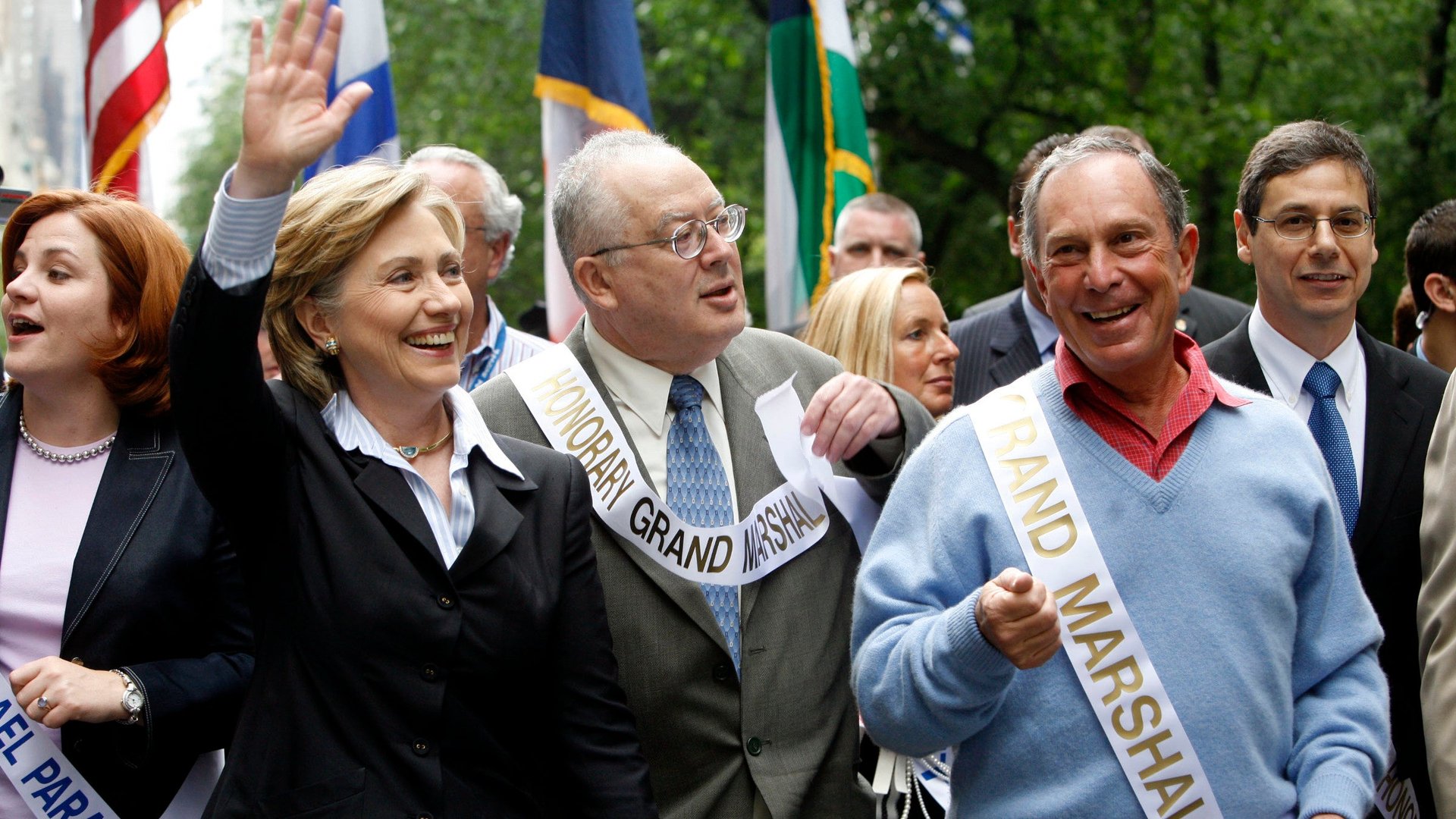Michael Bloomberg to finally admit he’s still really a Democrat—and won’t be president
Michael Bloomberg is like a lot of wealthy, socially-liberal older men: He’s a Democrat, but he’d hate to admit it in so many words.


Michael Bloomberg is like a lot of wealthy, socially-liberal older men: He’s a Democrat, but he’d hate to admit it in so many words.
Yet tonight he is expected to endorse Hillary Clinton for president at the Democratic National Convention. It is a move intended to reassure American moderates. But it is as likely to exasperate progressives looking for Clinton to reject associations with the billionaire class, and to generate a chorus of Bernie boos on the floor.
The decision is telling, because it suggests that some of the ultra-wealthy may finally come to terms with US politics as it is, instead of how it might be shaped to be most flattering to their ambitions.
The self-made billionaire had two paths to New York’s mayoral mansion: join the city’s rump Republican party, or compete in the crowded Democratic primary field. The bond-trader turned information services magnate Bloomberg is no fool. He became a Republican and won the mayoralty in 2002. But, by the time he convinced the city council to let him run for a third term during the late years of the Bush administration, he had left the party apparatus he no longer needed and ran as an independent.
Through a tenure that displayed a well-managed city–even as police treatment of minorities became a public outrage and the housing market starkly divided residents–Bloomberg was seen as a potential presidential candidate by some. But beauty is in the eye of the beholder. These beholders–billionaires–think money can buy elections. But they rarely see or understand the mechanisms of loyalty and service that make political parties function as electoral and legislative coalitions.
These kinds of people—Starbucks CEO Howard Schultz, the No Labels coalition, Fix the Debt—make one correct observation: Americans don’t like parties, politicians and partisanship. They therefore assume that if they simply drop any party identification, it will be easier to promote their ideas.
The problem? Their fiscally-responsible, socially-liberal ideas are essentially the platform of a centrist Democrat, which confuses Democrats and angers Republicans. The main constituency for these groups is the media, which is happy to plump for a Democratic agenda without appearing partisan. At least the US Chamber of Commerce decided to embrace the Republican party outright, even if Trump has thrown a wrench into their equation.
Nonetheless, this spring’s primary campaign chaos seemed like a golden opportunity for Bloomberg. He floated a trial balloon for a presidential run that would split the difference between Trump and Sanders, with Clinton as a casualty along the way. “If there was great, great support for her, we wouldn’t be having this conversation,” one of his consultants told Quartz at the time.
Those days are gone. Clinton easily won the primary, and now faces a tight race against Trump for the presidency. And the prospect of Trump becoming the president is apparently too much to bear for Bloomberg—and, likely, many of his allies in corporate boardrooms around the US. The threat of Trump has made the price of lower taxes much too high.
But in a moment of truly cursed timing, Bloomberg is coming out to back Clinton at a moment when his credibility to do so is at its nadir—a billionaire at a time of economic inequality, an elite at a time of elite suspicion, a centrist Democrat as the party moves to the left. His presence may make it easier for other moderates playing a political status game to admit they’re with her, but will it sour the progressives Clinton desperately needs to turn out in November?